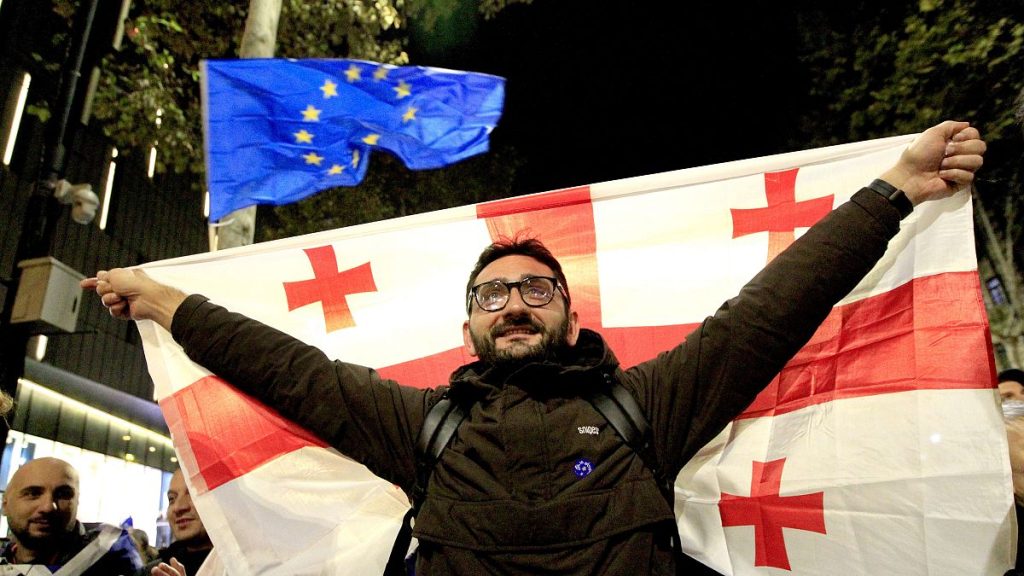Tens of thousands of Georgians recently marched through the streets of Tbilisi in a rally to support their country’s accession to the European Union. The demonstration, just a week before the upcoming parliamentary elections, is seen as a crucial moment in determining whether Georgia will continue on its pro-European path or return to Russia’s orbit. Protesters gathered under the banner of unity for the European future of Georgia, expressing their desire for a closer relationship with the EU. The ruling Georgian Dream party has been accused of undermining the country’s chances of joining the bloc, leading to concerns among opposition supporters.
The European Union granted Georgia candidate country status last year, but recent controversial legislation has raised eyebrows in Brussels. One of the laws signed by the parliament speaker bans same-sex marriages, adoptions by same-sex couples, and limits the depiction of LGBTQ+ couples in the media. The legislation also restricts gender-affirming care and changing gender designations in official documents, impacting transgender individuals and contributing to anti-LGBTQ+ hate crimes in the country. The speaker justified the law based on traditional values, including Georgian, Christian, and European influences. Additionally, a foreign agent law requires media organizations and NGOs receiving at least 20% of their funds from abroad to register as foreign agents or face fines, leading critics to dub it the ‘Russian law’.
President Salome Zourabichvili, who is pro-European, has been at odds with the Georgian Dream party over the controversial legislation and has refused to sign the bills into law. She emphasized the importance of European partnerships at the Tbilisi rally, expressing a desire for Georgia to be a strong ally and partner once it enters Europe. The laws have been criticized by the European Union, resulting in the freezing of Georgia’s EU accession process. Despite the opposition to these laws, the ruling Georgian Dream party remains the most popular in the country, with polls indicating they may receive over 40% of the vote in the upcoming elections.
The upcoming parliamentary elections in Georgia are significant as they will determine the country’s direction in terms of international relations and its European future. Supporters of the pro-European movement hope to maintain Georgia’s path towards EU integration, while oppositions voice concerns about the government’s actions hindering these efforts. The demonstration in Tbilisi serves as a unified message to support Europe and showcase the strength and unity of the Georgian people. However, the controversial legislation passed by the ruling party has sparked criticism and raised doubts about Georgia’s commitment to European values and principles.
Many Georgians fear that the country is being drawn closer to Russia’s orbit following more than three decades of independence since the collapse of the Soviet Union. The ongoing political tensions and controversial legislation have strained relations with the European Union and put Georgia’s EU accession process at risk. The developments leading up to the parliamentary elections have heightened uncertainty about Georgia’s future trajectory and sparked debates about the country’s geopolitical alliances. As the election date approaches, the outcome will likely have far-reaching implications for Georgia’s relationship with the EU and its position on the international stage.













